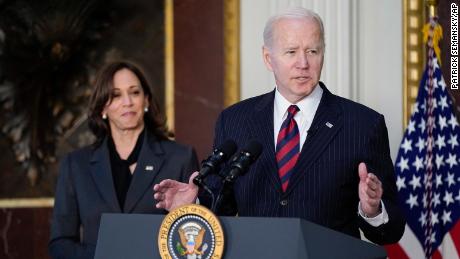President Biden is Revitalizing Underutilized Laws
The Sarbanes-Oxley Act was passed in the wake of the Enron scandal to close evidence tampering law loopholes by defining the law broadly and making it a crime to hinder or obstruct an official proceeding. Since the January 6th insurrection, nearly 800 people have been charged, including nearly 300 who have been charged with corruptly obstructing an official proceeding, a felony punishable by up to 20 years in prison. This is a novel new use of the law and has been upheld by all but one of the judges who reviewed its use; this judge is currently considering reversing his previous ruling.
Another rare charge being brought against Capitol rioters is civil disorder, a felony punishable by up to five years in prison. Codified in the Riot Control Act of 1968, it was rarely used after Nixon left the White House until the Trump administration, which charged nearly 30 individuals with civil disorder. To date, the Garland Justice Department has charged dozens of individuals with civil disorder for their roles in the Capitol riot, several of whom, most notably West Virginia lawmaker Derrick Evans and son of a New York City judge Aaron Mostofsky, have pleaded guilty; former NYPD officer Thomas Webster was convicted of this felony, among several others, at trial.
Yet a third, and by far the most rarely utilized of these laws, is seditious conspiracy as defined under the Sedition Act of 1861, which was enacted in response to John Brown's raid on Harper's Ferry in 1859. Nobody had been prosecuted under this law in over a decade, and only a handful of seditious conspiracy cases have been prosecuted in modern history, many of which have resulted in the suspects being acquitted. However, since the first charges were laid against 12 individuals affiliated with the Oath Keepers in January 2022, three have pleaded guilty in just over two months: Joshua James of Alabama, Brian Ulrich of Georgia, and William Todd Wilson of North Carolina. James faces up to 20 years in prison while Ulrich and Wilson each face up to 40 years in prison.
In the same vein but not related to the Capitol riot is the FACE Act, a federal law designed to defend abortion providers from acts of violence and obstruction. Since taking office, President Biden's DOJ has been arresting anti-abortion extremists at a rate of roughly one a month, the fastest rate of any president in U.S. history. One arrest, charging nine individuals, made global headlines. President Clinton signed the bill into law in 1994; he would arrest nearly 70 individuals while President Bush would arrest roughly twenty; by the time it came to the Trump administration, he arrested only a handful. Merrick Garland made a career out of prosecuting domestic extremists like Timothy McVeigh and the Unabomber, and he has certainly made it a priority to do the same in his Justice Department.
Under the Violent Crime Control and Law Enforcement Act also signed by Clinton in 1994, President Biden has launched pattern-or-practice investigations into the police departments of Louisville, Kentucky; Minneapolis, Minnesota; Mount Vernon, New York; and Phoenix, Arizona. There are several more investigations yet to be announced: under the Trump administration, just one such investigation was announced. President Biden's FY2023 budget includes hundreds of millions of dollars in extra funding to conduct investigations like these.
Also under the VCCLEA, Merrick Garland charged a Pennsylvania man with torture for his role in directing Kurdish forces in Iraq to torture an informant who was exposing his illegal weapons operation to authorities; in 2015, the informant was strangled with a belt, beaten, and threatened with the loss of his fingers over several days of captivity. Ross Roggio, 53, of Stroudsburg, has been charged with torture and 37 other charges carrying a combined maximum penalty of 725 years in federal prison. This is only the fourth time a torture charge has ever been leveled.
A major component of the VCCLEA was the Violence Against Women Act, which lapsed in 2019 during the Trump government shutdown. In March 2022, President Biden reauthorized the law with an additional $1 billion in funding for the Office of Violence Against Women and the expansion of programs protecting Native American women and girls, in particular, among numerous other fundamental changes.
One final component of this law was the COPS Program, designed to strengthen the bond between law enforcement and the communities they serve, which has been chronically underfunded for years. President Biden ran on a promise to increase COPS funding by $300 million. His 2022 budget increased funding by $125 million, and his proposed FY2023 budget would fulfill the rest of his promise and give the program the boost it needs now more than ever.
President Biden is revitalizing underutilized laws against domestic extremists, bad cops, wife beaters, and other degenerates; in doing so, he is bolstering tools available to law enforcement and prosecutors to fight various forms of injustice across the nation and making headlines with a barrage of high-profile cases, from the insurrection in America's most sacred place to violent crime in the shadiest corners of the world. I count at least eight ways in less than 16 months, and I hope President Biden, via Attorney General Garland, continues to do so at this pace and revitalizes dozens of underutilized laws.

Comments
Post a Comment